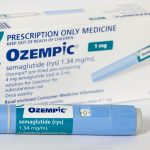It’s understood these kinds of issues have happened periodically throughout the pandemic, although on a smaller scale. The fact that the reporting lag amounted to a third of the day’s tests meant NSW Health officials decided to inform the public of the IT issue in their daily update. “While there were 12,213 tests reported to 8pm last night, compared with the previous day’s total of 19,959, NSW Health can advise the reported testing numbers today appear lower after a minor IT issue delayed inclusion of approximately 6,000 negative tests,” officials wrote. “These figures will be counted in tomorrow’s numbers. There were no delays reporting test results to individuals who had been tested.”NSW Health also urged anyone on Sydney’s northern beaches and near Berala in the city’s west to pay attention to any COVID-19-like symptoms they may experience, after virus fragments were found in sewage there.The Warriewood treatment plant handles waste from 160,000 in the northern beaches area. The western Sydney alert affects people in the suburbs of Berala, Auburn, Lidcombe, Rookwood, and Regents Park.
Those updates came on the heels of an alert for southwestern Sydney on Tuesday after virus fragments were detected at a waste treatment plant in Glenfield, which serves over 160,000 people.NSW Health officials sent out an alert warning people in a number of nearby suburbs to be watchful for symptoms and get tested if any appear. Those suburbs are Airds, Ambarvale, Appin, Bardia, Blair Athol, Blairmount, Bow Bowing, Bradbury, Campbelltown, Casula, Claymore, Currans Hill, Eagle Vale, Englorie Park, Eschol Park, Gilead, Glen Alpine, Glenfield, Gregory Hills, Holsworthy, Ingleburn, Kearns, Kentlyn, Leumeah, Long Point, Macquarie Fields, Macquarie Links, Menangle Park, Minto, Raby, Rosemeadow, Ruse, St Andrews, St Helens Park, Varroville and Woodbine.
Powered by WPeMatico






